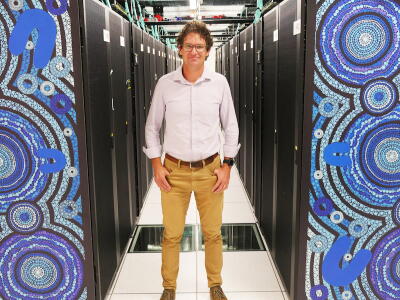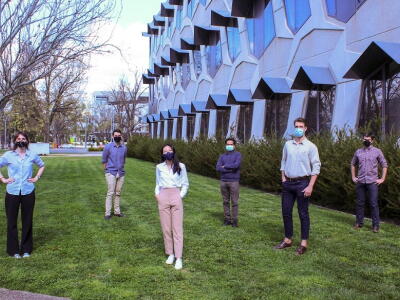Ecosystem approach to food insecurity a first for Australia
Posted on
Victorian social enterprises that are working together to redress food insecurity, hunger and nutrition issues in a culturally appropriate way in the wake of recent crisis have excited Australian National University (ANU) researchers who describe it as one of the nation's first frontline examples of social enterprises working collectively to create measurable social impact.
The Moving Feast program is the work of a group of Victorian social enterprises who aim to take an end-to-end approach to food security through an 'ecosystem' of solutions which has emerged in the wake of bushfires and the pandemic.
The program focuses on measures to counter climate change including sustainable ways to grow food in an urban setting, and distribute it in culturally appropriate produce boxes for the community, and for culturally appropriate relief meals. The groups also re-purpose excess foodstuffs to reduce waste.
It's a movement that Dr Babita Bhatt and her team from the College of Business and Economics research have been observing and examining as an applied example of a human-centric climate-conscious supply chain model.
The ANU research team say it's a novel approach because traditionally, individual organisations' efforts to tackle big problems such as climate change and food insecurity-while important-are often limited by scale and lack of integration. Moving Feast is instead creating a systemic approach, bringing together likeminded groups who work with shared assets and a governance model that is formalising in an organic way from the bottom up and building social cohesion in the process.
Dr Bhatt and her team have observed that such strong foundational growth may appeal to other impact investors.
It may also be a model that has the potential to be replicated in other areas where community impact is important but solutions need to be rooted in local contexts.
Dr Bhatt's research into Moving Feast is part of the ANU's Australian Social Cohesion: Exploring New Directions (ASCEND) program. Dr Bhatt and her team are also researching hybrid economic and cultural approaches to improving social cohesion.
To connect with Dr Bhatt or other ANU researchers who are conducting work on social cohesion, contact kathryn.vukovljak@anu.edu.au.
You may also like
Could our food choices have a positive green impact?
Making good food choices is necessary both for ourselves and for the planet, says plant scientist Professor Justin Borevitz.
Professor Hogg to take climate modelling to the next level
Professor Andy Hogg has been appointed as inaugural Director of the Australian Community Climate Earth System Simulator-National Research Infrastructure (ACCESS-NRI).
Plastic chomping company takes out top sustainability award
An ANU-backed start up that is turning the tide on the wave of plastic pollution flooding our planet has taken out a top prize in one of Australia's major sustainability awards.


